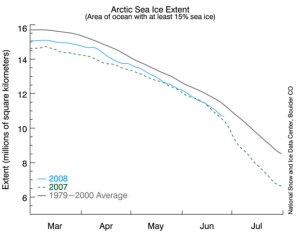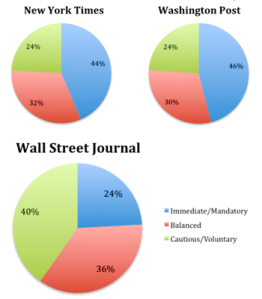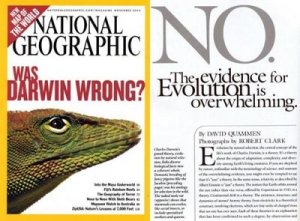Public Ignorance Polls August 23, 2010
Posted by Jamie Friedland in Climate Change, Media, Politics.Tags: Balance, Fox News, Journalism, Media Bias, Obama, Opinion Polls, Political Climate, Politics, Public Polls, ThePoliticalClimate
add a comment
News consumers are subjected to a daily deluge of polling data. Unfortunately, like much of today’s media coverage, this information is not leaving us better informed.
A conventional issue-specific opinion poll offers a choice between two valid responses. For example, “Do you approve of the death penalty?” This is an appropriate poll. There is no right or wrong answer; there are substantive arguments to support both positions, and the poll attempts to gauge public support for a controversial policy that is directly relevant to our nation’s governance.
A regrettable distinction can be made between a prototypical public opinion poll such as that and the frivolous politically-charged polls we see more and more today. I’m referring to polls such as, “Is Obama a Muslim?”
This question has a wrong answer. The responses are not equally valid. Such polls do not measure public opinion, they measure public ignorance. Worse, they measure the successful pervasion of partisan misinformation.
These polls are everywhere, and the results are always shameful:
- only 39% of Americans believe in evolution;
- only 43% of Americans believe in anthropogenic (human-caused) climate change; and, last week,
- only 47% of Americans believe Obama is a Christian (24% think he’s a Muslim).
What angers me most about these polls is that the phrase “believe in” really means “understand that.” These aren’t questions of choice. There is only one right answer. It’s indisputable.
The respondents in these three polls didn’t express their opinions, they betrayed their ignorance. And that ignorance is not the innocent absence of education, it’s the sinister product of deliberate misinformation spread by well-funded special interests (for the polls above, evangelicals, big polluters and conservatives respectively…forgive the fuzzy boundaries between them).
Now, I am not saying that ignorance should be prosecuted like some Orwellian thoughtcrime. To me, all these polls really show is that the media are failing. True, propagandists and politicians breathe life into these stories, but journalists are the ones who perpetuate this nonsense.
In the new era of “fairness and balance,” the media think they have to report every claim a partisan commentator makes without remarking on its truthfulness – because that would be “unbalanced.” Think of birtherism, Obama’s supposed socialism, death panels…all these manufactured scandals started as baseless comments reported by the media without question merely because a partisan spoke them. Apparently transcribing a press release or interview is now where a journalist’s obligation ends: We accuse, you decide.
Yet opposition does not confer equivalency. Just because there are two sides to a story does not mean they’re necessarily equal. For a journalist to automatically report them as such is misleading.
When a Wisconsin senate candidate says climate science is wrong and gives a scientifically disproven alternative “explanation,” it’s not partisan to say he’s lying – it’s accurate. In fact, to merely parrot those proven lies isn’t balance, it’s active disinformation.
Real public opinion polls have obvious political value for politicians and advocates etc. But what do public ignorance polls contribute to society? Nothing. They just validate the misconceptions they seek to quantify by presenting them on equal footing with actual facts. This is another manifestation of the “bias of balance” in modern media coverage.
With one notable exception, today’s major media outlets are not trying to disseminate falsehoods, but they are succeeding nonetheless. As long as we allow balance to trump accuracy in journalism, this type of ignorance will not only persist but continue to spread.
Another Day on the Campaign Trail: GOP Lies = News August 17, 2010
Posted by Jamie Friedland in Climate Change, Congress, Election, Media, Politics.Tags: Climate Change, Election, Global Warming, GOP, Jon Stewart, Journalism, Media Bias, Milwaukee Journal Sentinel, Political Climate, Politics, Ron Johnson, Russ Feingold, Senate, Steve Schultze, sunspots, Tea Party, The Daily Show, ThePoliticalClimate, Wisconsin
2 comments
On Monday, a GOP senate candidate in Wisconsin made the following statement:
“I absolutely do not believe in the science of man-caused climate change. It’s not proven by any stretch of the imagination.” –Ron Johnson, six-figure BP stockholder and oil spill apologist.
This “forgotten Tea Party candidate” went on to expound his misguided opinion in detail. He said some other stupid things, but I think my favorite was that a strong economy would keep the environment clean. Isn’t that cute?
It always angers me to see such baseless denial, especially when excreted by a man who would seek to become among the most powerful decision-makers in our country. But what really set me off was how this story was covered.
The national press will do what they always do, so for Congressional races, I prefer to take a look at how these stories are covered locally in order to better gauge what effect they will have on the people who can actually vote. The Milwaukee-Wisconsin Journal Sentinel has more than twice as many readers as the next biggest newspaper in Wisconsin.
This is the article they ran by Steve Schultze. Suffice it to say that it did not calm me down.
In the ~800 word piece, the word “said” appears 25 times and makes up 3% of all the words used. This “article” isn’t journalism, it’s stenography. Worse, in letting Ron Johnson dictate to the newspaper, this reporter just spread blatant misinformation.
Yes, I know this guy was reporting an interview. I am aware that Mr. Johnson is entitled to his opinion, even if it’s wrong, and that a reporter’s job is, in this case, to present that opinion to the electorate. But journalists are supposed to pursue the truth, not just balance.
Let me offer a more specific example from the interview. Johnson is 100% sure that humans aren’t warming the planet. So how does he explain the rising temperatures?
“It’s far more likely that it’s just sunspot activity,” he says.
That’s Johnson’s opinion, that’s what Schultze reported. Why is that poor journalism? Because it is demonstrably false.
Solar output does vary, and that radiated energy does exert some influence on our climate systems. So at first blush, sunspots do appear to be a valid hypothesis for global warming. …That is, until you take even a glance at solar output data and discover that we are in a drastic solar minimum; the sun is currently cooler than it’s been in over a century.

Since 1975 the sun has been cooling while our planet warmed. That’s not how cause and effect work. Click for full size | Image credit: SkepticalScience.com
Fact: the sun is not causing our current climate change. If anything, decreased solar output is masking what would otherwise be even more extreme warming!
After reading Schultze’s article, Wisconsinites know that Ron Johnson thinks the sun is causing global warming. Don’t the voters deserve to know that he is unquestionably wrong? Wouldn’t that help them make a more informed decision? I think so.
In the hallowed name of fairness and balance, Mr. Schultze did offer a counterpoint to Johnson’s falsities:
[Democratic Sen. Russ] Feingold has taken a completely opposite position on global warming, saying that “most people think man had some role in it.”
And that was that. A difference of opinion, nothing more.
In political news coverage, media outlets strive to maintain objectivity by offering both candidates equal coverage, without appearing to favor one or the other. That 50-50 coverage, presenting both sides of the story in a “we report, you decide” paradigm, accomplishes objectivity when covering differences of opinion.
However, when the media provide 50-50 coverage to a situation where one party is clearly lying or wrong, that attempt at objectivity becomes what is called the “bias of balance,” about which I have blogged extensively and wrote my honors thesis.
This problem pollutes the debate about every major issue our country faces today. Gutless, “balanced” media coverage enables conservative demagogues to successfully manipulate public opinion against effective and desperately needed legislative reforms. And the situation is not improving.
Everyday, critical policy considerations are buried further and further beneath piles of manufactured yet diligently transcribed political drama. THAT is why I am among the majority of people who think this country is on the wrong track.
And no, Mainstream Media, that is NOT bad news for Democrats – it’s bad news for America. And it is in no small part your fault.
Case in point a la Jon Stewart and the NYC mosque ridiculousness (as usual, worth watching in its entirety, but most directly relevant starting at 4:00).
For Sale: The Fourth Estate April 15, 2010
Posted by Jamie Friedland in Congress, Election, Media, Politics.Tags: Alan Grayson, Balanced Media, CNN, Elections, Erick Erickson, Fox, Fox News, Glenn Beck, Joe Wilson, Journalism, Mainstream Media, Media, Media Bias, MSNBC, Partisanship, polarization, Politics, spin
1 comment so far
In a classroom, if you present an argument, it is expected to be logically sound. If it’s not, you can expect to be called out for that. As a [relatively] recent college graduate, it has been disheartening to discover that those expectations do not extend to important places off-campus. Like our government.
I now live in Washington, DC, the front-line of a polarized America. And from the floor of the Senate to the op-ed page of the Washington Post, I am disgusted by the deliberate mistruths and toxicity that have polluted the national dialogue. Name your issue, they’re there.
I have taken to watching Fox News at the gym; say what you will about Glenn Beck, but I have yet to find anything that keeps me as fired up – provided I can overcome the urge to assure passersby that I am not a Tea Partier. But if you actually watch the programs, it becomes clear that these talk shows are a cleverly wielded and dangerously effective political tool.
It is true that MSNBC runs similarly structured programming and is guilty of some of the same partisan tactics. Both “news” organizations should clean up their acts. But MSNBC does not operate with Fox’s defiant shamelessness, and ideological opposition does not automatically confer equivalency.
Many people I’ve talked to argue that Fox News is irrelevant because it yells into its own echo chamber and thus does not affect moderate, independent or undecided voters anyways. But even if I were to concede that premise, in the media’s current state, I have to disagree with the conclusion.
Last year, I lamented Fox’s apparent victory as the mainstream media embraced “balance” as their primary value, unseating objective accuracy. Consider a linear spectrum from liberal to conservative. As long as balance trumps accuracy, whenever conservatives dive to the right, no matter how outrageous the claim, media outlets must move at least half as far in that direction to stay in the center. That taints everybody’s news.
Instead of trying to perfectly straddle that mobile center, media outlets have increasingly drawn upon punditry; pair each comment from the left with a comment from the right and you have ostensibly achieved balance – at the expense of the truth. Case-in-point: CNN’s recent hiring of the despicable, foul-mouthed conservative blogger Erick Erickson.
If the news is just a soapbox for politicos and outlets are afraid to call out disprovable lies, the system has collapsed.
When the now infamous Rep. Joe Wilson (R-SC) interrupted President Obama, he didn’t yell, “I have statistical data that casts your theory into doubt!” A baseless claim, “you lie!” now suffices as a political riposte. And the solution to this behavior is not an equally extreme liberal demagogue like Rep. Alan Grayson (D-FL). Just tell the truth!
The nastiness of our political discourse is unprecedented, but not inexplicable. Our two-party system has had this all-out combative capability since Jefferson and Adams. It has just been held in check by the media…until now.
With its financial survival threatened, American journalism has sold out and compromised its ideals. Accusations of media partisanship have begun to stick partly because they’ve begun to be true. And with its objectivity in question, one of our government’s most important safeguards has failed: the loss of accountability is to blame for our current political climate.
Politicians used to be restrained by unbiased fact-checking and investigative journalism. Trusted, objective news coverage once held extreme rhetoric in check. Today, American news outlets are either perversely partisan or utterly defanged. And when the referees are biased or silent, the game quickly turns violent.
Knowing what we’ve lost is the first step towards replacing it. But I’m not sure how to take the second. Journalism didn’t fall from grace because it grew tired of protecting of our democracy, it succumbed to increasing financial pressure and failed to adapt.
There is money to be made in opinion journalism because we, the public, are demanding it. So we must instead demand that news sources provide news, not spin or the political talking points du jour. If that means stop watching MSNBC and Fox News, we must do that too – I once managed to motivate myself without staring at Glenn Beck’s curvaceous bod, I can do it again.

Fox News created the tea party movement. That isn't news reporting, it's news-making. That is not what media outlets do.
Even if we cannot sway the national media, we are not powerless to turn back this ugly tide. We can’t pick the refs, but we can pick the players.
Believe it or not, it’s already another election year. Many primaries are just next month, and in November many of us will be able to elect a new U.S. Senator and Representative.
So let me be the first this year to say, “please vote.” As an official DC resident, I essentially no longer can. It’s one of the many things I miss that I was able to do in college.
A version of this post appeared in The Chronicle at Duke University.
Balancing Act April 14, 2009
Posted by Jamie Friedland in Climate Change, Media, Politics.Tags: Bias, Climate Change, George Will, Global Warming, Joe the Plumber, Journalism, Juliet Eilperin, Mary Beth Sheridan, Media Bias, New York Times, Opinion, Sea Ice, Sea Ice Loss, Wall Street Journal, Washington Post
10 comments
In February, Washington Post columnist George Will wrote a piece entitled “Dark Green Doomsayers.” This column, joined by two others over the last three months, was littered with blatant mistruths and distortions about climate science. For example, Will claimed that a study said global sea ice levels hadn’t changed in 30 years when in reality it documented a loss of 520,000 square miles. Either painfully ignorant or deliberately deceitful, Will’s work has rightfully incited intense criticism of the Post.

- Arctic sea ice is retreating rapidly, and global levels have definitely decreased. Will claimed that no change had occurred while sea cover the combined areas of Texas, California, and Oklahoma disappeared. Credit: NSIDC
The paper has taken halfhearted steps to redeem itself. The Post’s ombudsman responded, but really just defended the paper and its editors. Then the Post ran two powerful letters to the editor debunking Will’s columns (one of them written by the Secretary General of the World Meteorological Organization (WMO), whose work Will also misused)…only to allow Will to misrepresent WMO data again in his third column!
Newspapers have a responsibility to provide accurate information to their readers. Permitting such thoroughly disproven material to be published, even in an opinion piece, undermines the journalistic integrity of the entire paper. And clearly others at the Post agree.
Because the editorial staff so clearly shirked their duty, serious journalists at the Post have stepped in. A week ago, Juliet Eilperin and Mary Beth Sheridan finally chastised Will – from the Post’s news section. Their article on sea ice decline included a paragraph that reads: “The new evidence…contradicts data cited in widely circulated reports by Washington Post columnist George F. Will.”
This is unprecedented. The task of fact-checking or retroactively correcting an errant columnist should fall to the editors or ombudsman, not to writers on page 3. And this incident skirts a journalistic issue of great importance to climate coverage in general: opinions in news.
News articles are supposed to contain facts, not opinion. In this case, Eilperin and Sheridan were justified because Will has been so verifiably and even quantifiably wrong in his recent columns that the existence of his errors is fact. But subtly opinionated news has plagued global warming coverage for years.
At the beginning of the year, I set out to examine the interaction between the media and the uninformed American public here on this blog. And as I wrap up this endeavor, I am also putting the finishing touches on an honors thesis investigating bias in the print coverage of climate change. To that end, I conducted a media analysis examining news stories (omitting editorial content) that mentioned global warming and how they portrayed the state of climate science.
I focused on measuring the “bias of balance,” which occurs when reporters artificially equalize two unequally supported, competing viewpoints (like climate scientists versus skeptics); essentially overzealous attempts at objectivity. But the most interesting results appeared when I separated my data by source.
The New York Times, Wall Street Journal and Washington Post are among the nation’s leading newspapers. And because writers for all three ostensibly strive for the same impartiality and cover the same set of climate-related events, one would think that their climate news coverage should be quite similar.

- In my data sample, coverage in the NYT and WP was nearly identical in tone. The WSJ was a whole different story.
And in the New York Times and Washington Post, it is. In the Wall Street Journal, however, articles are fully twice as likely to emphasize caution and voluntary programs to address climate change (rather than immediate, mandatory regulation). They’re also five times as likely to present with doubt the concretely established existence of anthropogenic (human-caused) warming. That’s just in news stories, not opinion columns or letters. This suggests that editorial voices can infiltrate into supposedly objective news articles to significantly influence coverage.
But even the most accurate climate coverage may be lost on many people. A recent Gallup survey showed that a record high 41% of Americans now think that news stories exaggerate the seriousness of climate change (3x more Republicans than Democrats). Yet the lessons of my thesis apply to threats that people actually comprehend and respect too.
According to Tom Rosenstiel and Bill Kovach, distinguished journalists now leading the Pew Project for Excellence in Journalism, “the primary purpose of the media is to provide citizens with the information they need to be free and self-governing.” And if that is true, today’s media are largely failing.
With pundits driving coverage and politicians’ sound-bites replacing expert analysis, real journalism is getting drowned out; we should be hearing from Joe the Economist, not Joe the Plumber. And the fact that you can turn on different “news” stations and see completely different views of the world is a shameful indictment of our overly politicized country.

- He may be thinking hard, but whatever comes out of his mouth will not better our country in any way.
The media have collectively settled on a misguided notion of balance and “fairness” as their single-minded priority for journalism. But what this country really needs right now is an emphasis on accuracy; viewers should not get to decide what facts are real. There is far too much at stake for such foolishness.
Opinion journalism has its place, and that’s not on the cover or under a breaking news headline. It’s at the back of the paper behind even the comics, opposite the editorial page where commentaries belong.
A version of this post ran in the Chronicle at Duke University.
Unfortunate Evolution February 24, 2009
Posted by Jamie Friedland in Congress, Media, Politics.Tags: Bias, Creationism, Darwin, Democrats, Evolution, Fox News, Intelligent Design, Journalism, Media, Media Bias, Politics, Republicans
2 comments
On the cover of its November 2004 issue, National Geographic posed the question “Was Darwin wrong?” But when you flipped to the article inside, the answer was printed in big, bold font: NO. Even the main evolution page on Wikipedia doesn’t mention any controversy, and for all of the free encyclopedia’s faults, that’s saying something. Yet just in time for Darwin’s 200th birthday, Gallup released a new poll showing that a scant 39 percent of Americans “believe in the theory of evolution.”

That’s appalling. This shouldn’t need explaining, but there is no substantive controversy about evolution. There are still questions to be answered about some of its mechanisms and intricacies, but within the volumes of predictive, verifiable data we have gathered, there is not a single piece of evidence that refutes the theory. And for clarification, that’s scientific theory, rigorously tested and tantamount to fact, like the theories of gravity and plate tectonics. This differs from the colloquial “theory” you might use to guess how you made it home from the bar without remembering. To paraphrase physicist Murray Peshkin, saying evolution is “only a theory” is like saying it’s “only science.”
Yet just last month, Dr. Don McLeroy (a dentist) led conservatives on the Texas Board of Education in a renewed crusade to wedge religion into the classroom at the expense of basic education. This review of the state’s science standards will face a final vote next month, but similar battles have already been fought in at least ten states over the past decade, often buoyed by alarming levels of public support. In Kansas, the most infamous case, teaching evolution was actually banned for two years. Thank goodness we aren’t trying to pass any evolution legislation.
We are, however, expecting legislation on important science-based issues like climate change, and the outlook there is just as bleak. In my first column this semester, I wrote about a May 2008 poll showing a partisan divide among Americans who understand that humans contribute to climate change. A similar Rasmussen poll recently found that this rift has widened: now just 21 percent of Republicans acknowledge anthropogenic climate change, compared to 59 percent of Democrats. As Stephen Colbert once said, “Reality has a well-known liberal bias” (video in this previous post). So it is understandable that Republicans have not exactly championed our nation’s academic pursuits. But an anti-scientific sentiment can have dangerous consequences, especially if it goes unchecked.
Watching the major congressional battles since this summer (especially on offshore drilling and climate change) I have noticed a trend: the national media, particularly on TV, have largely abandoned their watchdog role and have been covering these debates without substantive fact-checking as “he said/she said” stories. Facts and fabrications have been placed on equal footing to avoid “taking a side.” The election was covered the same way. But this is a terrible journalistic paradigm.
Balance is nice, but isn’t accuracy a more important journalistic value? Calling out a politician for lying is not partisan, it’s the media’s responsibility. Obviously it would be best if people just told the truth, but that’s not happening. And the stimulus coverage was more of the same.
Media Matters analyzed twelve cable news programs’ coverage of the stimulus debate. Of the 460 guests interviewed, only 25 of them – that’s 5 percent – were actually economists. No wonder the potential impacts of the bill were so vulnerable to political spin. And Think Progress found that savvy Republicans were only too happy to exploit this opportunity, appearing on cable news programs twice as frequently as their Democratic counterparts. But one network took coverage to a new low.
The following may shock you, so brace yourself: Fox News has a Republican bias. And last week, they were as tactful as a skirted starlet stepping from a limo. On Feb. 10th, anchor Jon Scott put up a graphic showing the costs of the stimulus package that was copied verbatim from a press release by the Senate Republicans Communication Center, same damning typo and all. “Fair and balanced” my Democratic donkey. Kudos again to Media Matters for “exposing” such a blatant attempt to disseminate partisan propaganda as reporting. But at least Fox had the courage to apologize – for just the typo (video thanks to Howard Kurtz).

Um, yeah...not so much.
Our country is being steered by a misinformed public and polarized politicians unrestrained by accountability. Science itself is under attack. These are complex problems with varied causes. Yet they have one thing in common: objective media coverage could combat them all.
But that’s not going to happen. Believe it or not, journalism is evolving. With the expansion to the internet and growing popularity of blogs, niche news is on the rise. People seem to want their news told from their perspective, and media outlets will provide what consumers demand; Fox News, the Huffington Post, even Jon Stewart are thriving. And with newspapers experiencing serious financial difficulties, the days of the objective reporter could actually be numbered. If you think bipartisanship is a myth today, try to imagine it at the bottom of this slippery slope (a logical fallacy, I know, but the point stands).
I wish I could end this column with a solution, but I honestly don’t see one. It would be comforting to believe that some omnipotent, not explicitly Christian deity was guiding this media transformation, but judging from its current trajectory, this looks like anything but an Intelligent Design.
A version of the post ran in The Chronicle at Duke University.


